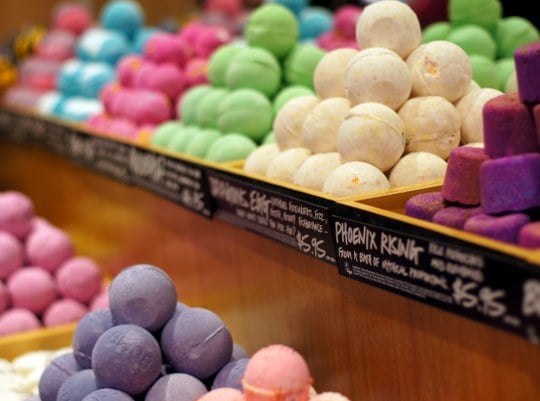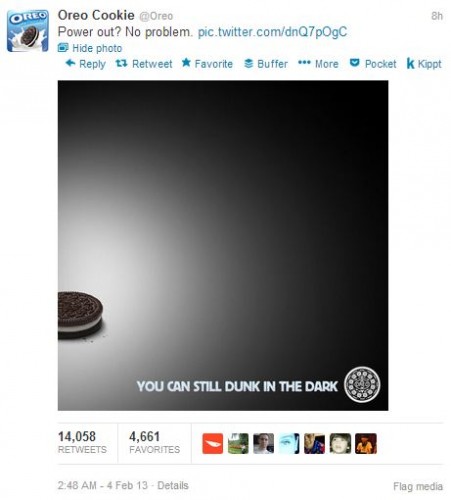Transparent practices are everything to PCR. Our client relationships, work environment, and overall model of business are based upon honesty and integrity. As marketing continues to progress toward user experience design and analysis, we believe it is vital to fuel the discussion on transparency and help organizations realize the importance of openness with their customers, employees, and strategies. This weekly series highlights the organizations who are getting it right and who other businesses can look toward for guidance.
For the better part of my life, I’ve harbored a certain degree of mistrust toward cosmetic companies. Ever since becoming aware of the cruelties of animal testing, I’ve been especially careful to purchase from beauty brands that label their products as “cruelty free”. Unfortunately, these products are scarce needles in the majority of drug and cosmetic store haystacks and are less readily available and typically more expensive than your average tube of lipstick. Although our society is gaining consciousness of health trends like GMO-free and organics, and sustainable shops continue popping up to meet demand, the beauty industry has largely fallen behind in terms of advocating for ethical, environmental practices. People seem to have greater concern for the origins behind their food than for the creams they put on their faces, hair, and bodies. Enter LUSH Cosmetics.
The company’s conception can be traced back to 1970’s Britain and since, it has gone through a variety of branding alterations to become the global beauty tycoon that it is today. LUSH currently boasts over 700 stores, spans 40 countries, and has around 6,000 employees. Although certainly transformed since it’s humble UK start, it continues to be managed, operated, and expanded by like-minded people who value transparency and sustainability over all else. As a mid-sized enterprise, LUSH Cosmetics sticks to it’s small-scale, independent ways of thinking, and places top priority on using minimalist, responsibly-sourced ingredients, the well-being of it’s employees and the environment, and openly educating consumers in the beauty buying process. It seeks to protect and advocate for the welfare of “people, animals, and the planet.”
Concern for the sources
Almost all of LUSH’s ingredients and concoctions are born straight from Mother Nature, and they are always striving toward the highest ethical standards and lowest environmental impact. The retailer is committed to using fine-quality, organic fruits, vegetables, and oils in their products and continuously works toward eliminating synthetics in favor of natural alternatives. The formulas for every bath bomb, lip scrub, and facial cleanser are invented by the company and are handmade. Raw materials are only sourced from manufacturers and businesses that do not condone or perform testing on animals. In order to hone in on the company’s sustainable voice, LUSH creates half of their products in solid form; even conventional staples like shampoos and conditioners. Liquids and lotions that do require packaging use 100% post-consumer recycled containers in order to minimize landfill waste and reduce energy on production. Even seemingly small details like gift-wrapping papers and shopping bags are made to leave behind little to no carbon footprint. This year, LUSH’s sustainable practices saved “over 300 trees, 135,000 gallons of water, 675 gallons of oil, and reduced greenhouse gas emissions by 28,000 CO2 equivalents.”
LUSH’s Charity Pot Campaign was started in 2007 as a long-term initiative to support the activities of environmental, humanitarian and animal rights activist groups from Zoocheck Inc. to The Clean Air Coalition. Proceeds come directly from LUSH’s Charity Pot product, a hand and body lotion that is sold at each of their stores. 100% of it’s sales go directly toward the company’s fund. So far, over five million dollars has been donated and distributed across 400 charities worldwide. The company is constantly considering new ways of helping global causes that align with company views.
Concern for the company
If it isn’t already clear, LUSH is about more than just selling soap. They maintain a deep-rooted set of goals than is emulated directly into their company culture. They realize that, while aligning their company politically and ethically to specific organizations and causes, the business runs a high risk of isolating potential customers and losing sales. LUSH maintains a very particular and intentional audience and workforce. The company appeals to a highly specific sector of the beauty industry because of their unwavering commitment to making Earth a better place. Rather than test their products that do contain synthetics on animals for example, LUSH has invested in seeking out alternative methods to ensure customer safety. They now use regulation-qualified, 3D human skin models to test for irritants and cell culture tests to gauge other side effects. They have deliberately defined cosmetic norms in favor of branding themselves as resourceful and environmental, and are constantly improving their openness as a business.
Aside from external awareness like environmentalist practices and long-term campaign funding, LUSH’s company culture supports it’s sustainable vision directly through employment. The company’s website insists that all employees are “retailers and activists.” Hires are made based not only upon credentials, but upon each individual’s passions and the issues that are important to them. In fact, most causes that Charity Pot donates toward are immediately selected directly through LUSH’s employees. The company knows that their eco-conservative ideology strikes a chord with the people who work there and as a result, the company functions as a symbiotic group of activists. LUSH has also taken a stand for the civil and social rights of their employees. In 2011, the US division of the company launched their Freedom to Marry Campaign as an effort to support marriage equality. The effort was the result of an employee survey that asked each staff member to list the issues that were most important to them. The top answer was equality to same sex couples, and LUSH stood behind its workers to petition anti-gay legislation like DOMA in favor of the Respect for Marriage Act. Like the Charity Pot Campaign, the cosmetics company also created a product called the Freedom Foamer bubble bar, which raised $70,000 toward marriage equality. LUSH stands behind their employees because their employees stand behind them.
Concern for the customer
All of LUSH’s in-store and online products give full and open disclosure of ingredients used, description of the manufacturing facilities involved, and corresponding health benefits. Products that are purchased in person include labels that tell the specific human being who made each one and all cosmetics can be tested before buying. While these practices sound simple and relatively typical, they are far from the norms of LUSH’s top competitors. By using mainly natural, vegan materials and processes, LUSH can communicate the nature of their products directly to their customers without concealing information. Again, most of the company’s customer basis feels very strongly about the well-being of the world and have strong stances on prominent, global issues. In this case, they are choosing to buy LUSH’s products not because they need new shampoo, but because they somehow identify with the story behind the product. While the company definitely sells within a niche market, the buyers that they attract are relatively easy to please because they already resonate with the principles and purpose of the business.
LUSH is a company that strives to continuously develop ethical practices, create humane cosmetics, and maintain positive relationships with like-minded people. Making profit is obviously a priority for any enterprise, but LUSH sees it as second thought in comparison the the vast list of global causes that it supports. People will continue to buy from LUSH not because their facial scrubs are moderately priced or because they smell good, but because of what they stand for.
Feature Photo courtesy of: MyHotelWedding.com





